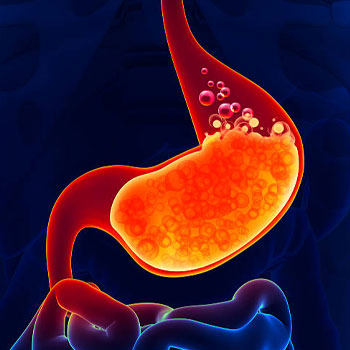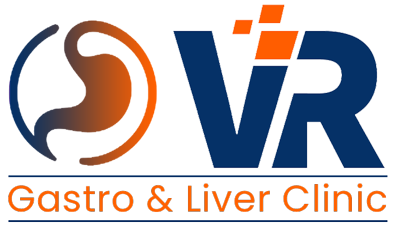What is acid reflux or GERD?
Acid reflux, also known as gastroesophageal reflux disease (GERD), is a common digestive disorder characterized by the regurgitation of stomach acid into the esophagus. This condition can lead to uncomfortable symptoms such as heartburn, chest pain, and difficulty swallowing. Understanding the causes, symptoms, and treatment options for acid reflux is essential for managing this condition effectively.
What causes acid reflux disease?
Several factors contribute to the development of acid reflux:
Weak lower esophageal sphincter(LES)
The LES is a ring of muscle located at the junction of the esophagus and the stomach. When this muscle relaxes abnormally or weakens, it allows stomach acid to flow back into the esophagus, causing irritation and inflammation.
Hiatal hernia
A hiatal hernia occurs when a portion of the stomach protrudes through the diaphragm into the chest cavity. This anatomical abnormality can weaken the LES and increase the risk of acid reflux.
Dietary factors
Certain foods and beverages can trigger or exacerbate acid reflux symptoms. These include spicy foods, citrus fruits, caffeine, alcohol, and fatty or fried foods.
Obesity
Excess weight puts pressure on the abdomen, which can push stomach acid into the esophagus. As a result, individuals who are overweight or obese are more likely to experience acid reflux.
Smoking
Smoking weakens the LES and increases acid production in the stomach, making smokers more susceptible to acid reflux.

What are the common symptoms of acid reflux?
The symptoms of acid reflux can vary in severity and frequency. Common signs and symptoms include:
- Heartburn: A burning sensation in the chest that often occurs after eating or when lying down.
- Regurgitation: Sour-tasting fluid or food that travels from the stomach to the throat or mouth.
- Difficulty swallowing: A sensation of food getting stuck in the throat or chest.
- Chest Pain: Chest discomfort or pain that may mimic heart-related symptoms.
- Chronic cough: A persistent cough, particularly at night, due to irritation of the throat and airways by stomach acid.
What are the best treatment options for acid reflux in vijayawada?
Managing GERD typically involves a combination of lifestyle modifications, dietary changes, and medications. Treatment options include
Lifestyle modifications
Elevating the head of the bed, avoiding lying down immediately after eating, and maintaining a healthy weight can help reduce acid reflux symptoms.
Dietary changes
Avoiding trigger foods and adopting a diet rich in fruits, vegetables, lean proteins, and whole grains can alleviate symptoms. Additionally, smaller, more frequent meals may help prevent acid reflux.
Medications
Over-the-counter antacids, such as Tums or Rolaids, can provide temporary relief from heartburn. Proton pump inhibitors (PPIs) and H2-receptor antagonists (H2 blockers) are prescription medications that help reduce stomach acid production and heal esophageal damage.
Surgical intervention
In severe cases of acid reflux that do not respond to other treatments, surgical procedures such as fundoplication may be recommended to strengthen the LES and prevent reflux.
How to prevent acid reflux?
While occasional acid reflux is common and usually harmless, adopting certain lifestyle changes can help prevent its recurrence
- Watch your diet: limit consumption of spicy, acidic, and fatty foods. Opt for smaller, more frequent meals.
- Maintain a healthy weight: shedding excess pounds can reduce pressure on the abdomen and decrease the risk of acid reflux.
- Stay upright after eating: avoid lying down or bending over immediately after meals to prevent stomach acid from flowing back into the esophagus.
- Manage stress: stress can exacerbate acid reflux symptoms, so practice relaxation techniques such as deep breathing, meditation, or yoga
- Quit smoking: if you smoke, quitting can improve LES function and overall digestive health.
Acid reflux is a common digestive disorder that can significantly impact quality of life if left untreated. By understanding the causes, symptoms, and treatment options for acid reflux, individuals can take proactive steps to manage their condition effectively and improve their overall well-being. It is essential to consult the best gastroenterologist in vijayawada for personalized advice and GERD treatment recommendations tailored to individual needs.
If you are looking for acid reflux or GERD treatment in vijayawada, consult Dr. Veera Abhinav Chinta. He is a renowned gastric doctor in vijayawada who can provide expert guidance and treatment for gastroenterology diseases in vijayawada.
